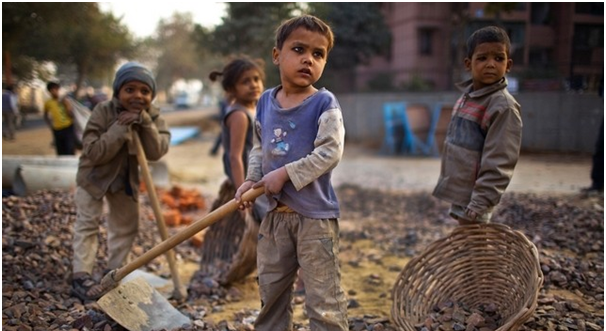India and Our Slaves, Who Cares?

In an alarming revelation of the 2016 Global Slavery Index effectuated by Australia- based human rights group ‘Walk Free Foundation’ on May 30, India emerged as one of the countries with the highest estimated number of people living in conditions of modern slavery. According to the survey data, approximately 46 million people are bound by different forms of modern slavery across 167 countries in the world with roughly 18.35 million of them populated in India.
A variety of dimensions including social class related hierarchical fault lines and systematic inequalities in a country of over 1.3 billion people is regarded to have played a cardinal role in delaying steady, swift improvement towards tackling this grave issue. There are more than 270 million people living below the poverty line in India and the concentration of these people in commercial regions primarily in response to plagued economic disparity has contributed to their vulnerability of being enslaved.
Human trafficking continues to be a significant social evil in India whereby a considerable portion of people are subjected to forced labour in industries including factories, domestic service, begging, commercial sexual exploitation, as well as terrorist or insurgent groups. A majority of these victims are known to have been recruited either by fraudulent tactics or coercion with the impending threat of harm if they were to leave. India has witnessed a 90% increase in human trafficking cases in recent years with 5,466 registered cases in 2014 even as quick prosecution in these cases has gone downhill.
Measures to protect victims against trafficking vary across the nation but remain largely ineffective. Recent findings of The Global Slavery Index have further crystallized the disturbing conditions of modern slavery in India.
Although illegal, research has confirmed that bonded labour is still rampant in many parts of the country and continues to engulf people under obligatory labour practices which often leave them susceptible to negative health impacts with no access to health care.
Bachpan Bachao Andolan (BBA) established by Nobel Peace Prize winning activist Kailash Satyarthi represents India’s largest movement for the protection and rehabilitation of victims of trafficking, slavery and child labour. Speaking to The Citizen, Rakesh Sengar, Director of Victim Assistance and Campaign, said, “Our organization rescues around 1500-2000 children from forced labour practices all over the country and 99% of these children were found to be victims of bonded labour. Factors such as illiteracy and economic disparity play a major role in pushing them towards exploitation. Almost 90% of these cases comprise of victims who were fell prey to traffickers and ended up working as slaves in different parts of the country. “
Efforts to ameliorate legislation against all forms of slavery not only require intensive planning but also timely execution in order to be effective. “Due to the abominable statistics, more centre and state sponsored schemes are being introduced to rehabilitate victims of forced labour. A recent government notification suggests the incorporation of increased compensation and assured social security within a limited time frame for victims,” added Sengar.
Economic growth in India, over the last decade, has displayed brisk escalation in addition to being accompanied by formidable plans of social and legal reform launched with the aim of curbing forced labour and providing security to the ones most susceptible to exploitation. The responsibility to sensitize people against the perils of forced labour lies upon both governmental and non-governmental institutions. A cognizant population would leave fewer people exposed to the possibility of being engaged in forced labour. However, it is imperative to strive towards enforcing existing schemes more effectively as well as to introduce new plans that offer security from all kinds of forced labour.
(Cover Photo: The child’s expressions says it all in this photograph taken by Daniel Berehulak, Getty Images that has been widely shared)



